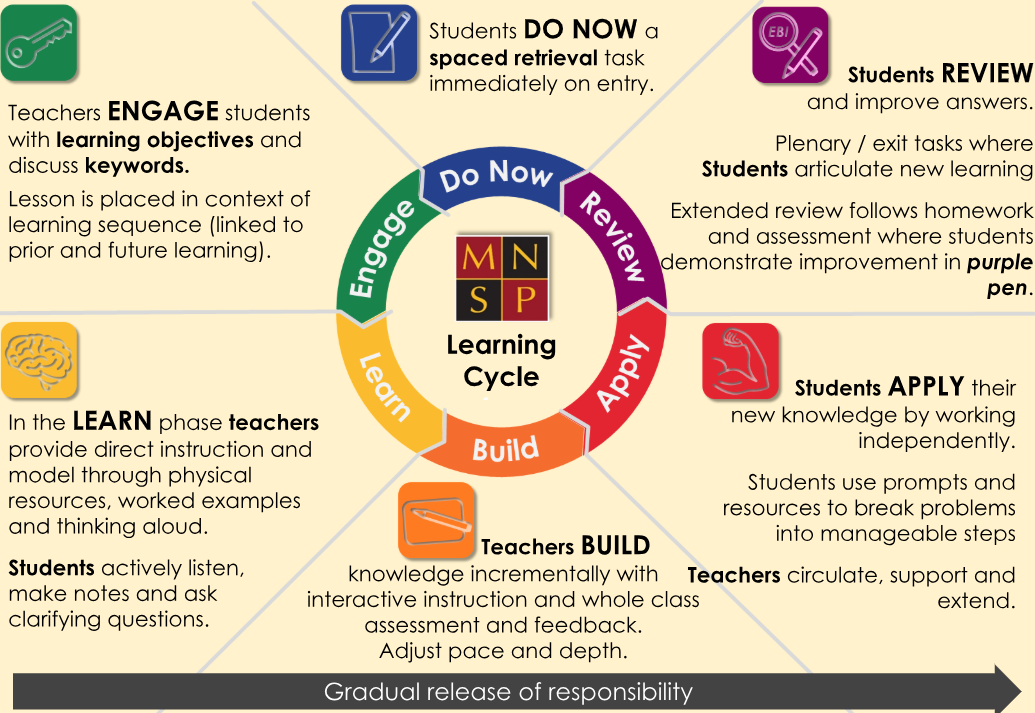Science
Science at Notton House
Nurturing curiosity through scientific discovery
Vision and Aims
At Notton House Academy, our Science Department is committed to developing a natural curiosity about the world around us, encouraging pupils to ask "how" and "why" at every opportunity. We believe that science education should be accessible, engaging, and meaningful for all our learners, regardless of their starting point or individual challenges.
Our approach embodies the school's core values of Safety, Kindness, and Respect by creating a supportive learning environment where pupils feel secure to explore, make mistakes, and grow. We understand that many of our pupils have experienced educational trauma, so we focus on building confidence through practical, hands-on investigations that celebrate discovery and progress at every level.
How We Teach Science: Science content is taught through the distinct disciplines of Biology, Chemistry and Physics, organised into topics that build upon each other. Knowledge is introduced carefully, ensuring pupils have the foundation they need to understand new concepts. Ideas are revisited regularly to improve learning and long-term retention.
Lesson Structure: Our lessons follow the 'DELBAR' (six-part lesson) model to maximise learning:
DO NOW; ENGAGE; LEARN; BUILD; APPLY; REVIEW

Our curriculum is structured around "the 5 big ideas" in each science discipline (University of York, 2018):
Biology:
-
The cellular basis for life
-
Heredity and life cycles
-
Variation, adaptation and evolution
-
Organisms and their environments
-
Health and disease
Chemistry:
-
Substance and property
-
Particles and structure
-
Chemical reactions
-
Earth atmosphere
-
Dynamic Earth
Physics:
-
Matter
-
Forces and motion
-
Sound, light and waves
-
Electricity and magnetism
-
Earth in space
Challenge and Differentiation: To ensure all pupils are appropriately challenged, we develop both substantive and disciplinary knowledge from the national curriculum. Tasks are clearly labelled as "prior learning", "core learning" and "extend and challenge" to help pupils extend their knowledge beyond the standard curriculum expectations.
Our commitment is to ensure that all pupils:
-
Develop a sound grasp of the big ideas in science and can apply them in both familiar and unfamiliar situations
-
Learn to use the scientific approach to solve real-world problems
-
Build resilience and problem-solving skills that will serve them throughout life
-
Gain qualifications that reflect their true potential and open doors to future opportunities
-
Experience the joy of scientific discovery in a trauma-informed, nurturing environment
What Qualifications are on offer?
We provide a range of qualifications to meet every pupil's needs and aspirations, ensuring multiple pathways to success:
Entry Level Certificate (ELC) Science
-
Foundation skills in scientific thinking and investigation
-
Perfect for building confidence and establishing core concepts
STEM Technical Award (Level 1, 2)
-
Practical science, technology, engineering and mathematics skills
-
Develops employability skills highly valued by modern employers
GCSE Qualifications
-
Astronomy
-
Biology
-
Chemistry
-
Physics
All qualifications are carefully matched to individual pupil needs, prior attainment, and future aspirations.
How are Pupils Assessed?
Our assessment approach is designed to support learning rather than simply measure it, reflecting our trauma-informed practice and commitment to individual growth.
Ongoing Assessment for Learning:
-
Every learning goal is differentiated with learning, mastering and extending outcomes
-
Pupils are formatively assessed against each outcome weekly through teacher questioning and classwork
-
Regular feedback celebrates achievements and identifies next steps
Progress Tracking:
-
Pupils working at 'mastering' level are meeting age-related expectations
-
Progress is measured through improvement from learning → mastering → extending
-
Individual learning journeys are celebrated, recognising that progress looks different for every pupil
Formal Assessment:
-
Pupils following formal qualification routes will experience exam-style questioning to prepare for their chosen pathway
-
Assessment methods are matched to individual pupil needs and qualification requirements
-
Stress management and exam technique support provided through regular THRIVE sessions, key working and therapeutic support
Pathways and Life Opportunities
Science education at Notton House Academy opens doors to a wide range of exciting and rewarding career paths, directly supporting our mission to improve life chances for all pupils.
Recent Year 11 Destinations: Our pupils have successfully progressed to:
-
Further education colleges studying A-Level sciences
-
Apprenticeships in engineering and healthcare sectors
-
Employment in local businesses and services
-
Specialist SEMH provisions for continued development
STEM Technical Award graduates often progress to:
-
Engineering apprenticeships
-
Further education
GCSE Science qualifications provide pathways to:
-
Engineering and technology careers
-
Further education and apprenticeships in STEM fields
-
Accessing post-16 college opportunities
Science education develops critical life skills including logical thinking, problem-solving, and understanding of the world around us - skills that benefit every aspect of adult life regardless of career path chosen.
How Can You Support Your Child?
Encourage your child to ask "how" and "why" about the world around them. Discussing science in the news - such as extreme weather, space missions, new technology, and medical developments - can help develop their natural curiosity and understanding.
Notton House Academy is part of Midsomer Norton Schools' Partnership
Our Core Values: Safety • Kindness • Respect
